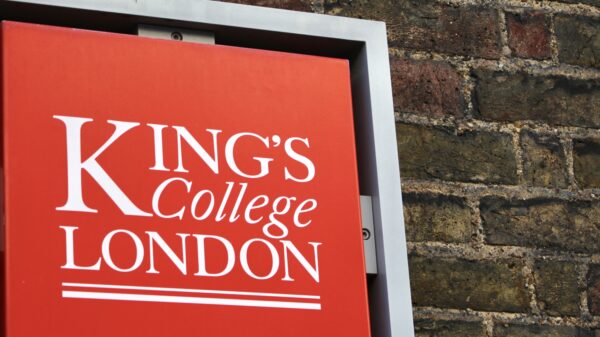Staff writer Timothy Gribble examines whether Netanyahu’s policies were too lax on Hamas before the attacks on southern Israel.
Palestinian flags, socialist stalls, anti-occupation signs and even a UCU (Universities and College Union) banner flooded Oxford Street at the pro-Palestine march on Saturday. As the protest reached its half an hour point, the 24-hour deadline had been reached for the evacuation of over a million people from Gaza. Looking down at my phone, an article reported that Hamas had claimed that a bomb had been dropped on a fleeing convoy by the Israel Defence Forces (IDF), who themselves deny any involvement.
Just a week earlier, Hamas, a group recognised as a terror organisation by the UK, were able to cross the Israeli border from Gaza near-unchallenged, abduct at least 200 hostages, some of whom are Holocaust survivors, and abuse and kill over 1,400 people. An attack from which the wounds may not heal for years. The events should be seen primarily as a series of unjustifiable atrocities, but also as an intelligence failure that is hard to comprehend. While Israeli Prime Minister Benjamin Netanyahu (and his new wartime unity government) has so far answered with air strikes, underlying questions are left unanswered as to how this was allowed to happen.
How could they have missed it?
How Hamas were able to get into Israel with little resistance is a question with no single answer. How did Israel miss this? The only cohesion to be found within the reactions to it are sentiments of pure disbelief. Israel’s intelligence system is seen as one the best in its field in the Middle East. With informants inside Palestinian groups, cameras, ground motion sensors, monitoring of sea and land channels, and regular army patrols along the border, it can only be seen as a catastrophic failure that Hamas’ plans were not detected: “We have no idea how this could have happened”, Israeli officials told the BBC.
Kobi Lavie, former head of the Palestinian affairs branch in the Israeli Ministry of Defence, claimed that it is “impossible to organise an operation of this magnitude without Israel knowing about it”, arguing that Israel’s failure was understanding the knowledge that it had obtained. Marc Polymeropoulos, a CIA official for 26 years specializing in counterterrorism, told CNBC that it is “almost inconceivable how they missed this”. Amongst speculation that support from Iran facilitated the attack, it is certainly clear that months or even years of meticulous and flawless planning were likely required in order to carry out this attack.
An unnamed Israeli security source has conceded that Hamas had successfully duped them into believing that they were hardly interested in any real conflict. Hamas has been building an image of relative passivity, giving the impression that they were content with the economic concessions that Netanyahu had been making. Another unnamed source told Reuters: “Hamas used an unprecedented intelligence tactic to mislead Israel over the last months, by giving the public impression that it was not willing to go into a fight or confrontation with Israel while preparing for this massive operation.”
But this hardly begins to explain the scale of this intelligence oversight. Hamas were able to smuggle a large number of resources into Gaza without detection, assemble thousands of homegrown Qassad rockets and conduct training exercises for this attack. Achieving this without detection seems unlikely and reports suggest that Israel saw the exercises but misread the training for posturing. The unnamed Reuters source even talked of a mock Israeli settlement being built in Gaza in order to practice the exact manoeuvres involved.
An unprecedented offensive
It may take years to fully realise what went wrong in this specific case. What is clear and unsurprising is that Netanyahu has taken an extreme response. Since the attacks, Israel has replied with relentless air strikes, with the death toll in Palestine surpassing 4,000 people. Netanyahu also cut the water, power and fuel that usually flows from Israel to Gaza and demanded the evacuation of over 1 million people from the north of the enclave, a task deemed impossible by the United Nations (UN).
Israel additionally seems to be planning an unprecedented offensive into Palestinian territory. They have waged war on Hamas with an offensive that has already and will undoubtedly take many more civilian lives. This immediate and vicious response was to be expected of the Netanyahu government considering their previous approach to the conflict and Israeli public opinion following the brutal raids into southern Israel. The Hamas attack certainly represents a serious failure in Israeli intelligence capabilities, but what other factors encouraged this attack by Hamas?
Hardliners
Netanyahu’s government has taken an aggressive stance on Palestine since it took power. The Netanyahu government has also further funded and supported settlements in Palestine that are deemed illegal by the UN Security Council, making the expansion of into these territories a ‘priority’.
The stage was set for this kind of approach to Palestine when Netanyahu formed a coalition with the Religious Zionist party. The arrangement gave a hardline, pro-settler party control over a number of key government ministries and a senior role in overseeing the construction of Jewish settlements.
The party is headed by Bezalel Smotrich, a leader of the West Bank settlement movement, clear in his desire for a vast increase in Jewish settlements in the region. The coalition gave now-finance minister Smotrich wide powers in administering settlements in the West Bank. Just as controversial was Itamar Ben-Gvir receiving a role in overseeing the police and paramilitary border police. Ben-Gvir is a disciple of Rabbi Meir Kahane, the late rabbi who called to ban Jewish-Arab intermarriage and the mass expulsion of Palestinians. He has also been convicted of offences that include inciting racism and supporting a terrorist organisation.
Netanyahu’s coalition government put a party that derides the mere possibility of a functioning Palestinian state into positions of great power over the territory. Since the formation of this government in December of 2022, there has been heightened tension in the region. This boiled over in July, leading to the biggest Israeli incursion into the West Bank in 20 years.
Tolerating Hamas
In comparison, Netanyahu has been more than lenient with Hamas in Gaza, taking a controversial approach to the group since he took power. In order to maintain control over the region, Israel has been simultaneously relatively tolerant of Hamas, while making sure that the Palestinian Authority (PA) in the West Bank remained weak. Israel has also reinforced Hamas’ authority in the region by allowing money to flow into Gaza from Qatar. They also included Hamas in the negotiations for additional work permits for Gazan citizens.
This tactic is far from a secret. Finance Minister Smotrich expressed his support for Israeli policy treating the Palestinian Authority as a burden and Hamas as an asset in 2015. According to reports, in a factional meeting in 2019 Netanyahu himself argued that those who oppose a Palestinian state should support the transfer of funds to Gaza; and that maintaining the separation between the Palestinian Authority in the West Bank and Hamas would prevent the establishment of a Palestinian state. In order to maintain weakness in the region, Netanyahu’s policy tolerated Hamas’ control more than the PA’s.
Far from peace
As Netanyahu responds viciously to the atrocities of Hamas in Israel, many begin to scrutinise the actions of his government in the past year. Already Israelis are starting to suggest that the conditions for the Hamas attacks can be linked to the failures of the far-right coalition.
What is clear is that peace is not in sight. Hezbollah threaten the northern borders. Continued funds and support from the United States are accompanied by an urge for restraint. But Israeli warnings continue to echo through the headlines: the next stage is coming.












